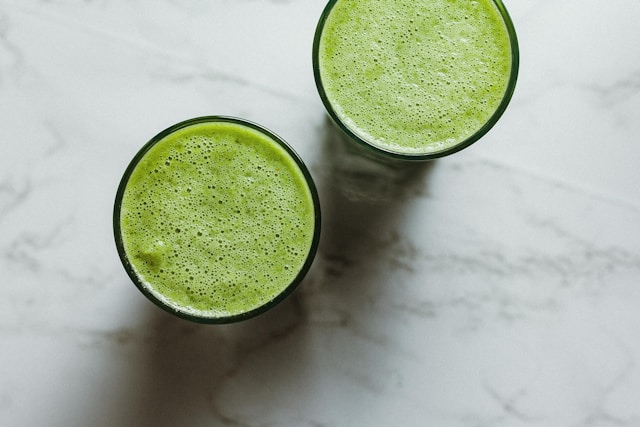Is Your Green Smoothie Clean? The Honest Guide to Vegan Protein Safety
Not all plant-based powders are created equal. We expose the hidden fillers, heavy metals, and label tricks so you can fuel your body without the toxins.

The shift toward plant-based nutrition is undeniable. Whether for ethical reasons, environmental concerns, or simply to feel lighter and more energized, millions of us are trading whey for peas, rice, and seeds. It sounds like the ultimate healthy choice, right?
But here is the uncomfortable truth the wellness industry often glosses over: "Vegan" does not automatically mean "Healthy." In the rush to capitalize on the green trend, many manufacturers have flooded the market with powders that are highly processed, laden with artificial gums, and—most alarmingly—contaminated with heavy metals and pesticides.
You are taking protein to build a stronger, healthier body. The last thing you want is to inadvertently dose yourself with toxins or gut-irritating fillers. In this no-nonsense guide, we are going to teach you how to read between the lines of a nutrition label. We will uncover the "Dirty Dozen" ingredients to avoid, explain why sourcing matters, and empower you to choose a protein powder that is as clean as your conscience.
The Invisible Threat: Heavy Metals in Plant Protein
A few years ago, a major study by the Clean Label Project shocked the fitness world. They tested over 130 of the best-selling protein powders and found that, on average, plant-based proteins contained twice the amount of lead and significantly higher levels of arsenic and cadmium compared to animal-based proteins.
Why does this happen? It’s not that plants are bad; it’s about the soil. Plants like peas and rice are incredibly efficient at absorbing nutrients from the earth. Unfortunately, if they are grown in soil contaminated by industrial pollution or cheap fertilizers, they absorb heavy metals just as easily as they absorb minerals. When these plants are processed into concentrated powders, the heavy metals get concentrated too.
The Savvy Solution: Sourcing & Testing
Does this mean you should avoid vegan protein? Absolutely not. It means you must be selective. The only way to ensure safety is to choose brands that prioritize:
- Clean Soil Sourcing: Ingredients grown in regulated, non-industrialized regions.
- Third-Party Testing: Independent lab tests that verify the product is free from harmful levels of heavy metals. If a brand won't show you their tests, walk away.
Label Detective: Ingredients to Avoid
Beyond contaminants, many vegan proteins are stuffed with cheap additives to improve texture and taste. Here are the red flags to look for on the back of the tub.
1. Artificial Sweeteners (Sucralose, Aspartame)
While they keep the calorie count down, these synthetic sweeteners can wreak havoc on your gut microbiome, potentially leading to bloating and digestive distress—the exact opposite of what you want from a health drink.
2. Carrageenan & Cheap Gums
Used to make shakes feel "creamy," Carrageenan is a thickening agent derived from seaweed that has been linked to intestinal inflammation in some studies. While some gums (like Guar or Acacia) are generally safer in moderation, an excess of fillers indicates a low-quality product.
3. Soy Isolate (The Debate)
Soy is a complete protein, but it is also a common allergen and most soy crops in the US are genetically modified (GMO) and heavily sprayed with pesticides like glyphosate. Unless it is certified organic and non-GMO, highly processed soy isolates are often best avoided in favor of cleaner alternatives like pea and rice.
The Gold Standard: What You WANT to See
So, what does a safe, effective vegan protein look like? It should be simple, recognizable, and powerful.
The Power Duo: Pea & Brown Rice
On their own, pea protein is low in the amino acid methionine, and rice protein is low in lysine. But when combined, they form a Complete Amino Acid Profile that rivals whey protein in muscle-building capability. This blend is typically hypoallergenic, easy to digest, and naturally rich in BCAAs.
Natural Sweeteners
Look for brands that sweeten with Stevia or Monk Fruit. These are natural, zero-calorie sweeteners derived from plants that don't spike blood sugar or irritate the gut lining.
Minimal Ingredient Lists
The shorter the list, the better. A quality protein doesn't need to hide behind proprietary blends. You should be able to pronounce everything on the label.
Pure. Potent. Plant-Based.
At YouAreSavvy, we didn't just want to make a vegan protein; we wanted to make one we felt safe drinking every day. Our Power Proteins veggie blend is meticulously sourced, rigorously tested, and free from the "dirty" ingredients that plague the industry.
- ✓ Complete Amino Acid Profile (Pea & Rice)
- ✓ No Artificial Sweeteners or Fillers
- ✓ Tested for Purity & Heavy Metals
The Choice is Yours
Your body is your most valuable asset. Don't fuel it with compromises. By understanding the risks of heavy metals and additives, you can make informed choices that support your long-term health, not just your short-term fitness goals.
Choose transparency. Choose clean ingredients. Choose a protein powder that respects your body as much as you do.













